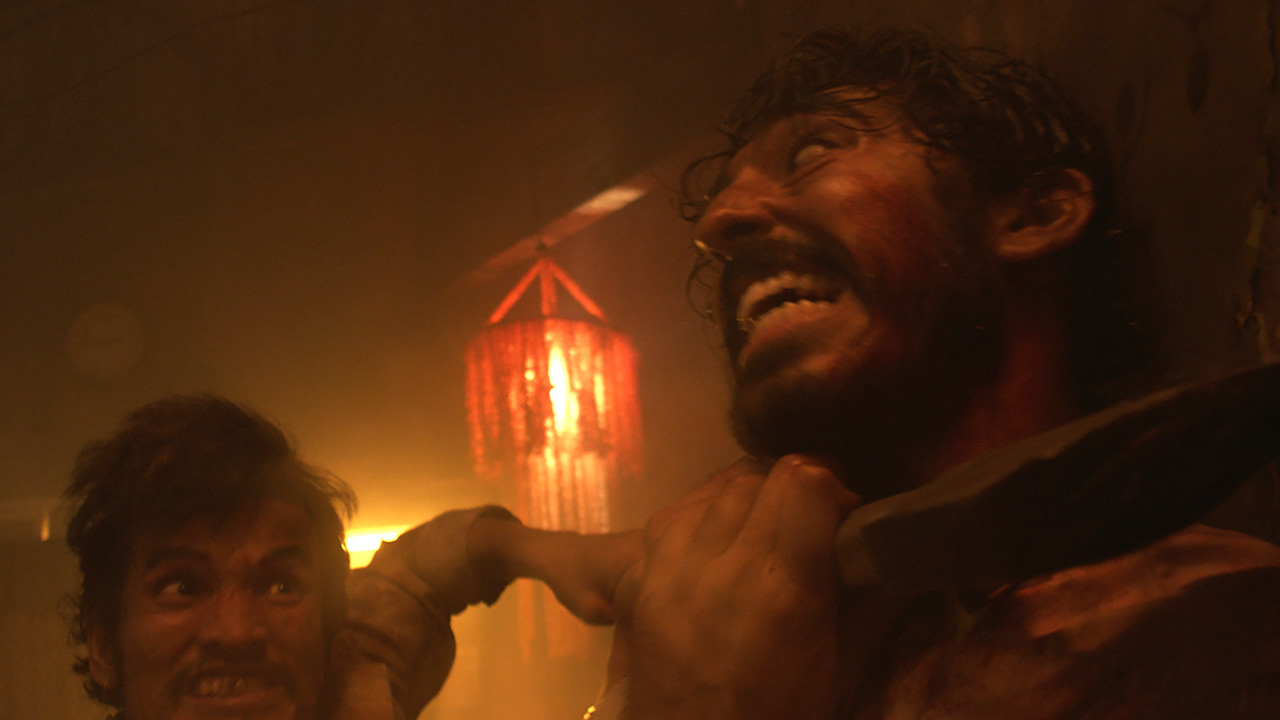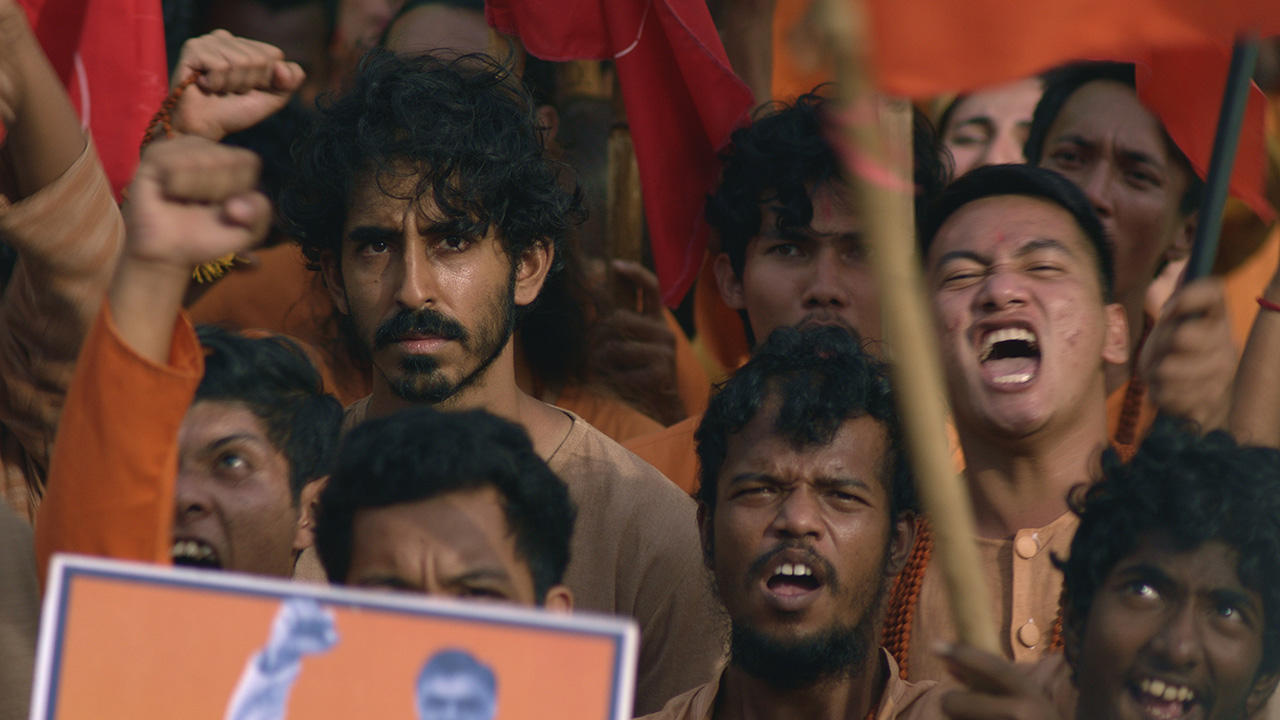Dev Patel’s Monkey Man is a cathartic stunner of a directorial debut

A man named Kid is out to avenge his mother in action flick Monkey Man. First-time feature director Dev Patel also leads the film, and as Katie Smith-Wong praises, he’s helmed a cathartic stunner of a debut.
In 2018, British actor Dev Patel announced his biggest role so far: Monkey Man, his directorial debut with a screenplay he co-wrote with Paul Angunawela and John Collee. Although originally set for a Netflix release, Academy Award-winning filmmaker Jordan Peele acquired it to give it a cinematic release under his Monkeypaws Productions banner.
Starting out as Anwar in British teen drama Skins, Patel is among the cult show’s several success stories with a career that includes roles in acclaimed features such as Slumdog Millionaire, Lion, and The Best Exotic Marigold Hotel. But Monkey Man is far from the audience-friendly fare of his previous performances—with a mysterious hero in the middle.
Monkey Man starts with Kid (Patel) scratching out a living by throwing fights in an underground fighting ring operated by seedy Tiger (Sharlto Copley) in the fictional Indian city of Yatana. Tired of being a punching bag, Kid’s dark past sees him target and secure a job at a high-end nightclub, seeing working his way up the hospitality ladder as a route to confronting those involved in the death of his mother.
Thanks to Patel’s stunning performance, Kid comes across a lost soul amid Yatana’s rich and poor. Willing to be savagely beaten for little money, as well as perform gross jobs at the club, he joins the masses of poor Indians struggling to survive in the shadows and slums. As much as he may wish to, witnessing the dodgy dealings by aggressive club manager Queenie (Ashwini Kalsekar) and the indecent actions of entitled rich patrons play on his emotions, leading to rare glimpses of compassion amid the violence. All the Kid wants is revenge, but he eventually realises that he has so much more to fight for.
Monkey Man is more than its conventional, revenge-driven premise with hints of real and cultural elements to flesh out the world. For instance, while Yatana could be seen as a pastiche of the poverty blighting any Indian city, where people sleep on the street outside neon-drenched VIP clubs that serve platters of drugs to the elite, the never-ending inequality that can be found in wealthy Western cities gives the Kid’s struggles a global relevance. In contrast, sporadic flashbacks of his mother and the stories she told him of the Hindu deity Hanuman (who is often depicted with a simian-like appearance) offer moments of calm to break up the film’s intense violence.
These contrasting elements are woven into the narrative to provide emotional tethers, pulling Kid between what he wants to escape and what he wants to regain. Ultimately, both are touched by Yatana’s ever-present corruption, notably the actions of police commissioner Rana Singh (Sikandar Kher) and religious and political figure Baba Shakti (Makarand Deshpande). Both present the idea that, in modern India, at least, authority and faith can often make problems worse rather than offering a path to salvation, causing the narrative to cry out for someone to stand up against them.

Sadly, the mix of sociopolitics, classism and spirituality is somewhat uneven and only tugs the film in too many directions, creating an unbalanced screenplay that can be hard to follow. Furthermore, the decision to keep supporting characters such as conflicted sex worker Sita (Sobhita Dhulipala) or Kid’s friend Alphonso (Pitobash) in the background deprives Monkey Man of much-needed variation in the film’s dark tone.
Where Monkey Man shines is its thrills and action. In a flurry of adrenaline-fuelled action scenes inspired by classic action films such as Enter the Dragon, John Wick and The Raid films, Brahim Chab’s incredible stunt cinematography doesn’t hold back the punches amid dimly-lit passageways and neon-lit backdrops. But the film is ultimately Patel’s baby—in front of the camera, he boldly establishes himself as a modern action star, capable of brutally disarming a horde of opponents in a wince-inducing floor-by-floor sequence reminiscent of Bruce Lee’s Game of Death. Behind the camera, his visuals feel unrefined but intimate, daring to bare the soul of Monkey Man’s sordid settings and its protagonist to show a raw directing skill that compensates for the film’s inconsistencies in pacing and tone.
There may be a lot of balls for Patel to juggle as a first-time director but there is no denying the monumental effort he has poured into this production. Monkey Man blends his heritage and cinematic influences, creating a cathartic stunner of a directorial debut. A true labour of love, Monkey Man puts Patel as an exciting new British filmmaker.



















